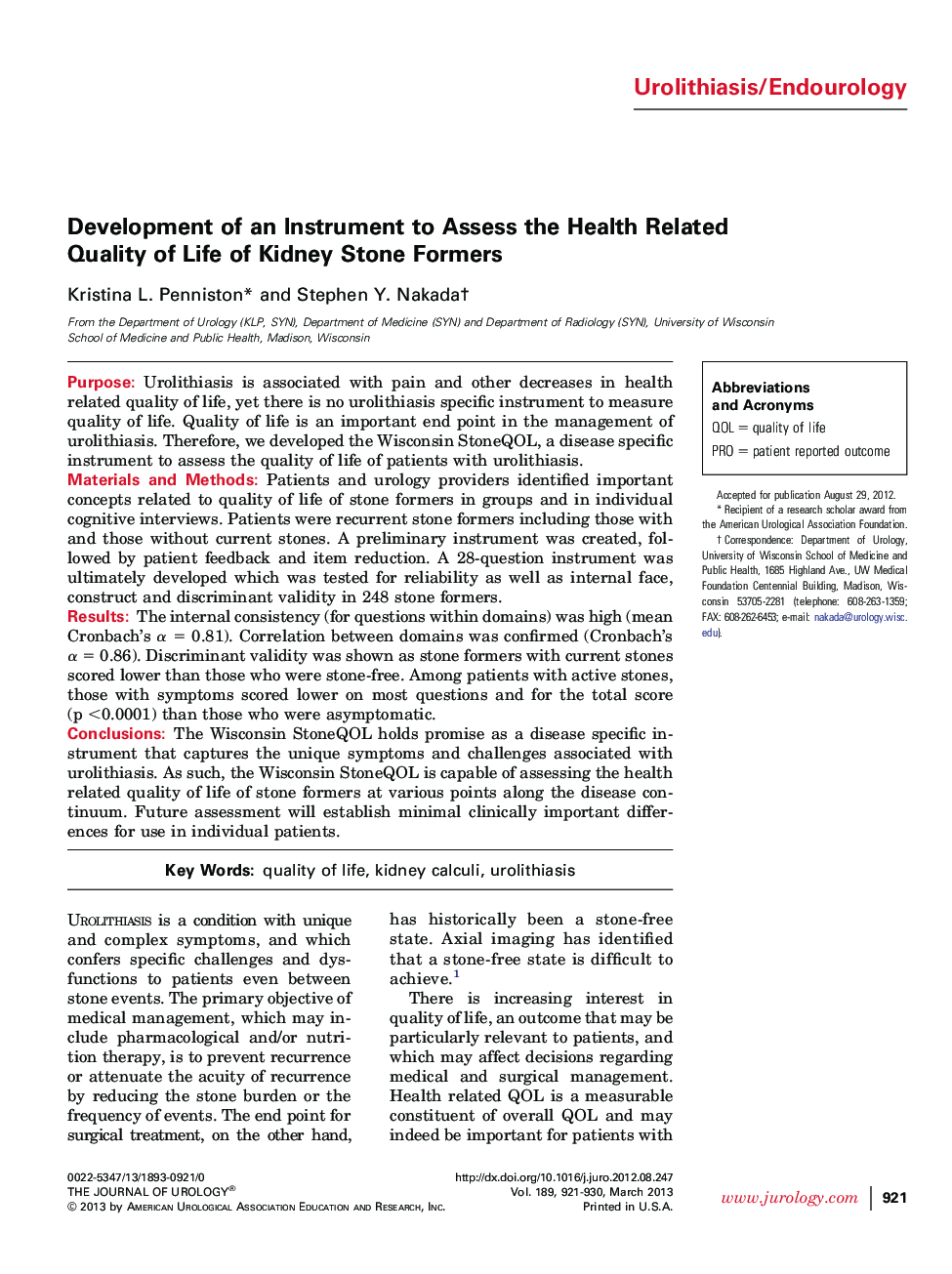| Article ID | Journal | Published Year | Pages | File Type |
|---|---|---|---|---|
| 3864928 | The Journal of Urology | 2013 | 10 Pages |
PurposeUrolithiasis is associated with pain and other decreases in health related quality of life, yet there is no urolithiasis specific instrument to measure quality of life. Quality of life is an important end point in the management of urolithiasis. Therefore, we developed the Wisconsin StoneQOL, a disease specific instrument to assess the quality of life of patients with urolithiasis.Materials and MethodsPatients and urology providers identified important concepts related to quality of life of stone formers in groups and in individual cognitive interviews. Patients were recurrent stone formers including those with and those without current stones. A preliminary instrument was created, followed by patient feedback and item reduction. A 28-question instrument was ultimately developed which was tested for reliability as well as internal face, construct and discriminant validity in 248 stone formers.ResultsThe internal consistency (for questions within domains) was high (mean Cronbach's α = 0.81). Correlation between domains was confirmed (Cronbach's α = 0.86). Discriminant validity was shown as stone formers with current stones scored lower than those who were stone-free. Among patients with active stones, those with symptoms scored lower on most questions and for the total score (p <0.0001) than those who were asymptomatic.ConclusionsThe Wisconsin StoneQOL holds promise as a disease specific instrument that captures the unique symptoms and challenges associated with urolithiasis. As such, the Wisconsin StoneQOL is capable of assessing the health related quality of life of stone formers at various points along the disease continuum. Future assessment will establish minimal clinically important differences for use in individual patients.
